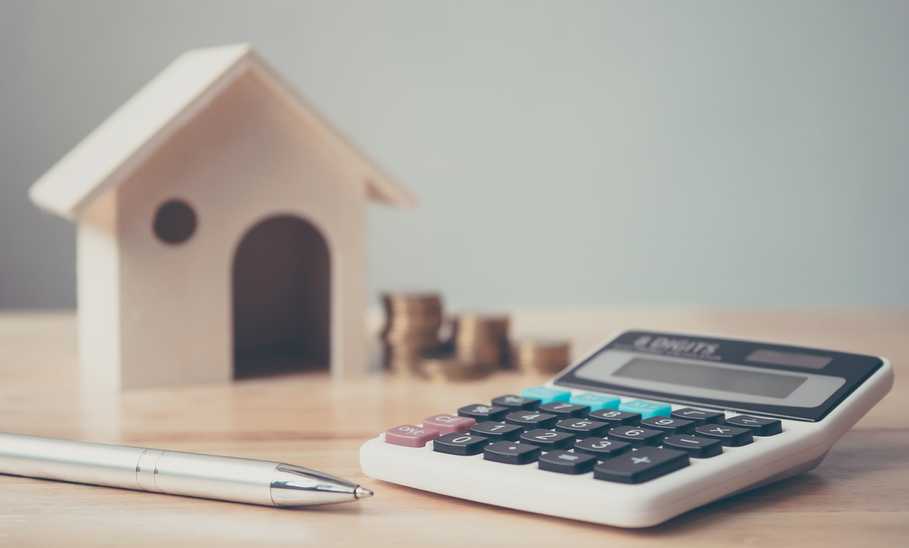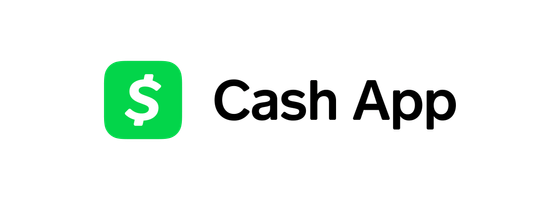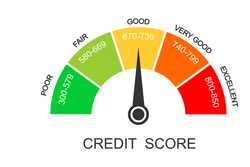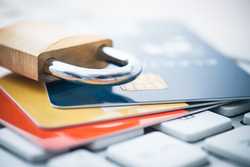- Funds can be directed into a connected bank account or optional Cash Card debit card.
- Cash deposits allowed through participating retailers.
- Direct deposit customers may receive paychecks up to two days early.
8 Ways to Build Credit

Our evaluations and opinions are not influenced by our advertising relationships, but we may earn a commission from our partners’ links. This content is created by TIME Stamped, under TIME’s direction and produced in accordance with TIME’s editorial guidelines and overseen by TIME’s editorial staff. Learn more about it.
Having a good credit history can make it easier to qualify for loans and get the lowest interest rates when you borrow. If you're starting from ground zero, it helps to know how you can build credit strategically.
There are a few ways to get your credit history started, and continue growing your score. If you're trying to build credit—or rebuild it after a past credit mistake—here's what you need to know.
If you're not sure how credit works, here is a quick explanation of the basics. When you're talking about credit, you're most likely talking about credit scores and credit history.
A credit score is a three-digit number that lenders use to measure your financial risk. FICO scores, which range from 300 to 850, are the most commonly-used credit scores. They're calculated using information from your credit reports.
Credit reports collect details about your financial history, including your payment history, how much of your credit limit you're using, and the types of credit you have. They're compiled by three major credit bureaus: Equifax, Experian, and TransUnion.
So why do you need to know all this?
Simply because if you want to build credit, it's helpful to understand how it works. With that in mind, here are some of the best ways to build a positive credit history.
On-time bill payments count toward the largest share of your FICO score, 35% in fact. One of the simplest ways to build good credit is to make timely payments to debts and other bills.
For example, maybe you don't have a credit card in your name but you took out federal student loans to pay for college. Your student loan payment history can show up on your credit reports. Making your payments on time as scheduled can help your credit score, while paying late or missing payments could hurt it.
If you struggle to keep up with bill payments, these tips can help:
Savings and investment features
Savings and investment features
Up to $1,000 per 30-day period for unverified accounts, may be higher for verified users
RELATED: Best Money Transfer & Payment Apps
Authorized users are added to someone else's credit card. They can use the card to make purchases, but they're not responsible for any debt that's created.
If you're wondering how that helps you build credit, there is an easy answer. Becoming an authorized user allows you to "piggyback" off the primary cardholder's credit history.
As long as the primary cardholder is making on-time payments and keeping their balance low, relative to their credit limit, those activities can appear on your credit reports. Keep in mind, however, that if they pay late or not at all, those negative marks could also show up on your credit and hurt your score.
A secured credit card is a credit card that requires a small cash deposit to open. For example, the credit card company might require you to have $200 to set up your account. That amount doubles as your credit limit.
$49 - $1,000
The trade off is that you don't need perfect credit, or in some cases any credit, to get approved. Once your card is open, you can use it to make purchases. As you do so, your available credit shrinks.
When you make payments against your balance, that frees up available credit again. The card issuer can also report those payments to the credit bureaus to help you build credit history. Some card issuers may even refund your security deposit and convert you to an unsecured card if you make a certain number of payments on time.
It can be difficult to get a loan with no credit history, but there are some options, including credit-builder loans. These loans, which you can find offered at banks and credit unions, work like this:
A credit builder loan is specifically designed to help you build credit, since the lender reports your payment history to the credit bureaus. If you want to use a loan to build credit, but you actually need the money you plan to borrow right away, you might consider the next option on this list.
Personal loans are loans that allow you to borrow a lump sum, for virtually any purpose. Just like with credit builder loans, making on-time payments to a personal loan could help you to build credit history.
What if you have no credit? How do you get approved for a personal loan?
In that case, you might consider applying for a loan with a cosigner. A cosigner is someone who agrees to be held liable for the debt alongside you. When someone applies for a personal loan with a cosigner, the lender can consider both of their credit histories for approval.
Getting a cosigned loan could help you build credit, as long as you're making payments on time. And you're not limited to only personal loans either. You might also consider applying for a cosigned private student loan or a car loan, if you need to borrow money for either of those goals.
The most important thing to remember is that if you don't pay the loan back for any reason, you and your cosigner are on the hook for the debt. The lender could take collection actions against you both, and any negative payment history would be reflected on both your credit scores.
That's important to know, as hurting your cosigner's credit or leaving them open to a creditor lawsuit could sour your relationship.
RELATED: Best Personal Loan Rates
RELATED: Best Auto Loan Rates & Lenders
If you don't have any loans or lines of credit in your name yet, you might still be able to build credit a different way. There are services that will allow you to report rent and utility payments to the credit bureaus in order to establish or build a credit score.
With Experian Boost, for example, you can get credit for a variety of bills, including:
You just need to connect your bank account, add the bills you want to track payments for, and wait for those payments to be added to your Experian credit score file. It's free to use and you can also get credit and identity monitoring services build in.
Credit-monitoring services alert you to changes in your credit file that could affect your credit score, either positively or negatively. That can include things like:
Using a credit-monitoring service can help you build credit by pointing out things that might be hurting your score. They can also detect fraudulent activity which could cost you credit score points.
For example, myFICO credit monitoring tracks your score and credit monthly so you can see what's giving you a boost or taking points away. There are three monthly plans to choose from, all of which require you to pay a fee. But you can always use Experian Boost for free credit monitoring if you're on a budget.
Credit building apps can help you to build a credit history by letting you borrow small amounts of money and pay it back over time. There are also apps that help you establish credit based on your debit card activity, which ordinarily wouldn't show up on a credit report.
Extra, for example, is a debit card with a credit-building component. When you sign up, you connect your bank account to Extra. You're then given access to a spending limit based on your bank balance, with no credit check required.
When you swipe your Extra debit card, Extra spots you the amount and then pays itself back the next day. At the end of the month, Extra totals up all of your spending transactions and reports them to Equifax and Experian as on-time payments.
You can build credit using your debit card through the app, with no interest and no fees. And it's even possible to earn 1% back in rewards when you use your Extra debit card to cover everyday purchases.
It can take time to see your hard work begin to pay off. Knowing which financial habits can result in a healthy score and which ones to steer clear of can put you on the path to better credit.
There's no magic bullet for improving credit. Instead, it starts with developing good financial habits. For example, paying credit cards and other bills on time, maintaining low balances on your cards, and keeping older accounts open can all help to raise your credit score. If you're just getting started with credit-building, you might consider asking someone else to add you as an authorized user to one of their cards so you can establish a credit score.
Secured credit cards can be a good fit for people with no credit or bad credit. These credit cards usually require a small cash security deposit, which doubles as your credit limit. As you use your credit limit and make payments, you can build credit history over time. If you make enough on time payments, your card issuer might refund your deposit and convert your account to an unsecured card.
Credit builder loans are good loan options for people with no credit history. These types of loans let you borrow money, which is held in an interest-bearing account. As you pay it back, the lender reports your payment history to the credit bureaus. Once the loan is paid off, the loan funds are released to you, along with any interest earned.
The information presented here is created by TIME Stamped and overseen by TIME editorial staff. To learn more, see our About Us page.






